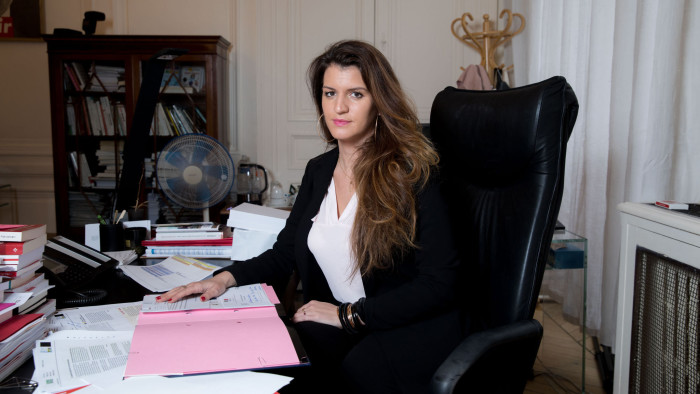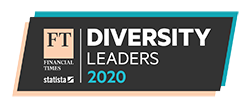French minister: gender equality must be at the heart of everything

Roula Khalaf, Editor of the FT, selects her favourite stories in this weekly newsletter.
According to the World Economic Forum we will achieve equality between men and women in the economic sphere in the year . . . 2234! Wonderful news for my great-great-etc-granddaughters, assuming that a climate catastrophe has not destroyed the planet by then.
I am joking but the reality is that this is urgent. To accelerate and finally reach gender equality in less than 10 generations, everyone must take responsibility: nation states, the world of work, individuals.
Individuals should do this by means of a collective awakening. It is easy to denounce others’ prejudices and stereotypes but harder to fight our own stereotypes — and we all harbour them. Everyone should test their gender biases in terms of recruitment, as for example proposed by Australia.
The world of work should act by putting operational software in place.

Explore the FT’s inaugural Diversity Leaders ranking of 700 companies here.
See the rest of the report here
Employers and unions should put gender equality at the heart of their negotiations.
Employers can also implement good practices such as extended paternity leave — as with the male staff of L’Oréal worldwide — to promote the sharing of schooling and household tasks in the family.
States should act through legislation, co-ordination and inspiration.
Equality is also about allowing each individual to realise their potential irrespective of the colour of their skin, faith (if any), or their postcode. For let’s not forget that wealth and intelligence are the product of diversity of thought and experience. This is all the more true considering that an enterprise with diverse teams will perform better economically.
There is an appalling lack of diversity in economic and political decision-making. When everybody thinks the same, people become complacent and there is no collective intelligence.
That’s why we are trying in France to highlight role models who can inspire young people to say to themselves: “I want to/can do that too.”
Breaking social codes to unleash the wealth of diversity of France is my guiding principle.
Thus at the G7 meeting we hosted, rather than discuss the future in a beautiful Parisian room decorated with gilt and chandeliers, I took equality ministers with me to meet female entrepreneurs who work closely with Africa, supported by the Bond’Innov incubator. It was the first time a ministerial meeting had been held in Seine-Saint-Denis, a poor Parisian suburb rich in diversity. I was proud to present to the G7 the excellent work of Seine-Saint-Denis. We must make the world’s decision makers understand that what is at stake in diversity is the use of all the talent that we must stop wasting, including that of 52 per cent of humanity, in other words women.
Also as part of its G7 presidency, France formed a consultative council for gender equality comprising 30 world experts. Nobel Peace Prize winners Nadia Murad and Denis Mukwege are co-presidents; members include Katja Iversen of non-governmental organisation Women Deliver, the Ukrainian Inna Shevchenko of Femen, Aïssata Lam of west Africa and South African Phumzile Mlambo-Ngcuka of UN Women. The council has compiled a list of best practices in gender diversity.
All G7 countries and several others, including for example Kazakhstan, have committed themselves to introducing legislation before next year that will improve the situation of women. In France, we have opted for a law on the economic emancipation of women.
The government will propose defining economic violence in law, as recommended by the Council of Europe’s Istanbul Convention. The legislation will also encourage banks to support female entrepreneurs as well as reinforcing the effectiveness of employer quotas to increase female representation in the workforce.
I know those opposed to quotas will ask: “Why choose women just because they are women?” I don’t know but for generations men have been chosen because they are men, so is it a problem? Let’s just try the opposite. They also say: “It’s demeaning to be chosen because one is a woman.” Again, what do you want me to say? It’s certainly less demeaning than not being chosen at all.
More seriously, without quotas we are told that only qualifications count: but is there really only one woman qualified to run a CAC40 [French blue-chip company]? I don’t think so. Lots of others deserve such jobs.
Like Iceland, France last year put in place a policy of transparency on the pay gap between women and men. The first French law enacted on this is almost as old as I am.
It is time to move from an obligation to put a system in place to an obligation to produce results.
Marlène Schiappa is France’s secretary of state for gender equality and the fight against discrimination
Comments